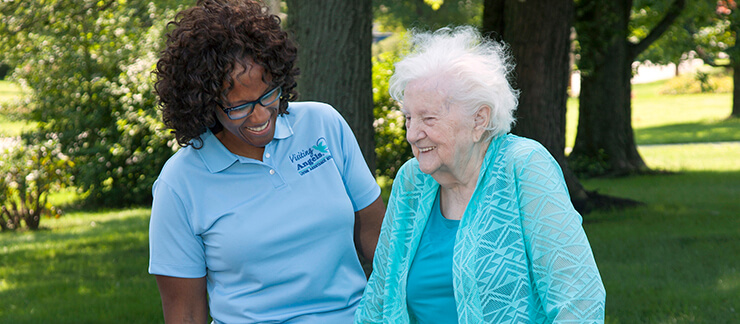
Keeping Your Senior Loved One Safe in the Summer
Most of us spend the year looking forward to summer. Warm temperatures, long days and summer vacations – there’s a lot like about the sunny season. But summer can pose some unique challenges if you’re caring for an elderly loved one. Be aware of potential summer hazards and consider whether planning with a professional caregiver could help your senior have a summer that’s as fun and relaxing as it is for the rest of the family.
Summer’s Elements and the Elderly
Older adults don’t adjust as well to changes in temperature as young people, so they’re more adversely affected by high temperatures. High temperatures in the summer can be just as deadly as low temperatures in winter – 658 Americans die from heat-related illness each
It’s essential to ensure that your loved one is aware of heat-related dangers and the measures that the CDC recommends to mitigate them:
- Drink more water than usual, and drink even if not thirsty
- Wear loose clothing
- Spend time in air conditioning and don’t rely on a fan for cooling
- Avoid physical exhaustion and get plenty of rest
Summer is a seasonal invitation to spend time outside, which does
Keeping Cool Indoors
Lack of air conditioning at home can be deadly when temperatures get very high. Consult your local Area Agency on
The CDC recommends that you visit those in your care at least twice a day, so consider whether you can manage this increase in visits yourself, or if you could benefit from a dedicated professional caregiver who can tend to your loved one.
Knowing what to expect during the hot summer months can help mitigate the risk of the unexpected.
Sun Exposure
Sunburn is a painful experience and it will most likely take seniors' skin longer to heal than a younger person. They should avoid being in the sun at its peak, between 10 am and 3 pm, and using high-SPF sunscreen is essential. Remind them to protect themselves from the sun when you see them, and consider professional assistance if you know your senior loved one likes to garden, go on walks, or do other activities outside.
Insects
Biting insects pass on disease and are most prevalent during summer months, especially mosquitos. Diseases like West Nile Virus (WNV), Zika and others pose a more significant threat to the elderly due to their weaker immune systems. Make sure your loved one is protected by repellant or ask the caregiver to remind your loved one during visits.
Falls
It’s great that your senior wants to spend time outdoors but remember
Overexertion
Nobody knows what your senior is capable of better than you, just remember that activity will take more out of him or her during hotter weather. Your mother may garden for an hour a day normally, but with high temperatures, she’ll need to work in shorter bursts and rest more. Heat exhaustion can be deadly and a professional caregiver
If you suspect heat exhaustion, take your senior straight to the emergency room. Trained professionals can spot the signs quickly.
Vacations
You can’t be with your loved one all the time,
Thinking about taking your loved one with you on vacation? Click here for a useful read on how to make traveling with your senior an easier proposition.



